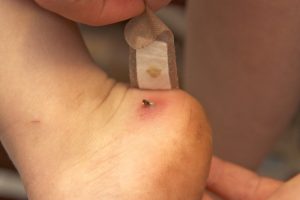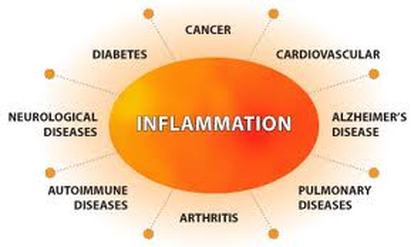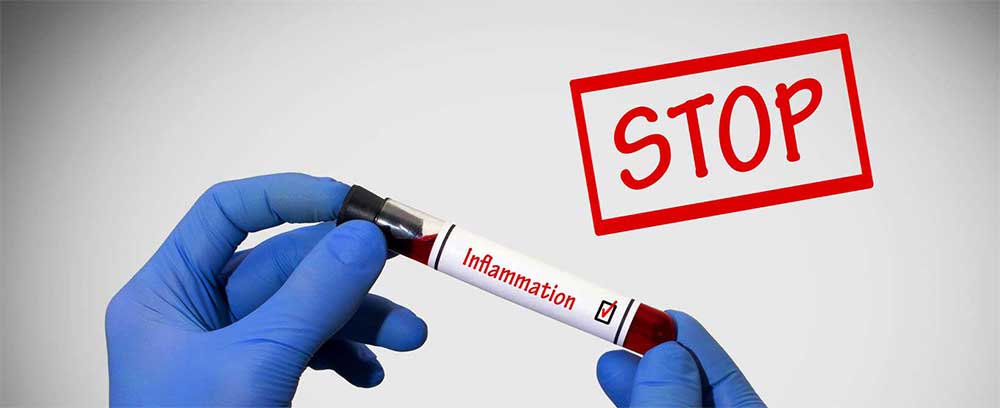From the Doctor’s Desk: Inflammation and You
by Dr Lai Jun Min
As a practicing medical doctor, I used to ignore the effects of inflammation, believing that the body would eventually cure itself (effects of acute inflammation) or there is nothing much that a medical doctor could cure, but just to treat (effects of chronic inflammation). However after years of providing conventional medical treatment, I slowly realized that many diseases could be traced to the effects of inflammation:
- Joint pains – inflammation of the joints
- Heart disease – proteins involved in inflammation are part of the causes of coronary heart disease
- Chronic inflammation linked to cancers of the lung, esophagus, cervix and digestive track
- Inflammation triggering long and short sleep duration
- Inflammation in the lungs causing fluid accumulation and narrowing of airways.
- Gum damage due to chronic inflammation of the gums caused by bacteria accumulation
- Obesity is a major cause of inflammation in the body
- Inflammation throughout the body can interfere with bone growth
- Chronic inflammation linked to faster cell aging
- People with depression have a higher number of inflammation in their blood.
Worldwide, various researches are being undertaken to understand inflammation, primarily whether these diseases are the cause of inflammation, or inflammation itself causes these diseases.
As a doctor, the questions that began to ring in my mind are, “what if we can prevent or reduce inflammation itself?”, “What if we could try nipping it in the bud, rather than allowing it to occur or progress?”. With these questions racing in my mind, I began to relook at my treatment methods, and slowly discover a much wholesome and holistic method to treat my patients.
So What Is Inflammation?
 In a nutshell, inflammation is the body’s response to outside threats such as stress, infection or toxic chemicals. Whenever the body’s immune system (or also known as white blood cells) detect any of these dangers, it would activate proteins that would protect cells and tissues. This is a natural occurrence of inflammation and it’s a healthy built in defence mechanism of the body.
In a nutshell, inflammation is the body’s response to outside threats such as stress, infection or toxic chemicals. Whenever the body’s immune system (or also known as white blood cells) detect any of these dangers, it would activate proteins that would protect cells and tissues. This is a natural occurrence of inflammation and it’s a healthy built in defence mechanism of the body.
One of the most visible occurrence of inflammation in action is when a splinter gets stuck and you’ve left it there. It would eventually turn red and swell a little. In this case, the immune system sends help into that area to fight any viruses, bacteria or pathogens that might have gotten in. Once the area is cleaned and there are no more pathogens, the swelling would eventually reduce and he affected area would be restored back to normal.
However there are occurrences where the immune system overreacts. Where it overprotects the affected area or even activates its defence mechanism without any reasons (also known as chronic inflammation). This type of harmful or chronic inflammation affects the individual. Chronic inflammation has been found to be the root cause that leads to various diseases:

So what causes chronic inflammation? There is a huge amount of research that is pouring in these areas, specific to each disease, however some basic information that we do know:
- External injuries- burn, frostbite, chemical irritants
- Internal injuries
- Lungs- cigarette or tobacco smoking, allergens that cause allergic reaction (immunological responses)
- Gastro intestinal- Alcohol, spicy food, sugar, irritants, contaminated food
- Neurological- drugs abuse, stress
- Nutritional deficiency- antioxidants
- Hormonal imbalance- delayed healing process
Most importantly there are methods to test for elevated inflammation in our body.
Testing inflammation levels?
There are a number of tests that are available today to detect abnormal levels of inflammation. One of the most common markers are hsCRP (highly sensitive C – reactive protein) and fibrinogen.
C-Reactive Protein (CRP) is a protein produced in response to inflammation and excessive deposits of cholesterol and fats in the liver and other tissues. The “high sensitivity” CRP test is needed to detect very low levels of CRP that may be seen with vascular and/or systemic inflammation allowing some form of prediction of cardiovascular events that can be useful in monitoring how well the patient is responding to lifestyle changes.
Fibrinogen on the other hand is a protein that is important for blood clotting. High levels are usually seen when there is any condition that causes inflammation or tissue damage.
What you should do?
If you have any symptoms that indicate prolonged and excessive inflammation such as:
- Redness
- Swollen joint that’s sometimes warm to the touch
- Joint pain
- Joint stiffness
- Loss of joint function
- Fever
- Chills
- Fatigue/loss of energy
- Headaches
- Loss of appetite
- Muscle stiffness
Please do see a doctor! Doctors may treat the symptoms and look for the cause. If no obvious symptoms, you may proceed to a blood test to check serum hsCRP and fibrinogen level. Please take note, these are just indicators, not diagnostic tools.
If you have any further questions, please do not hesitate to reach out to us!


